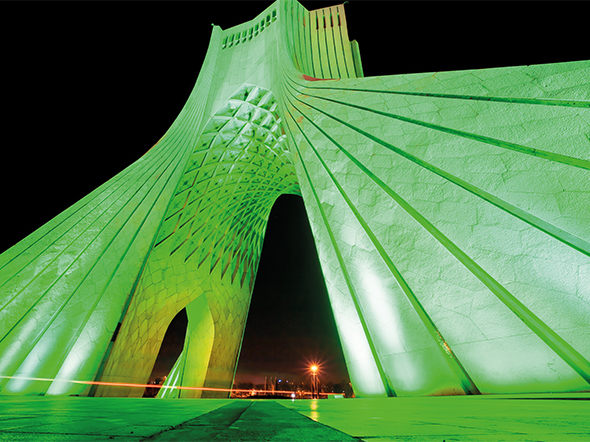FEATURE19 January 2016
Iran: After the sanctions
x Sponsored content on Research Live and in Impact magazine is editorially independent.
Find out more about advertising and sponsorship.

FEATURE19 January 2016
x Sponsored content on Research Live and in Impact magazine is editorially independent.
Find out more about advertising and sponsorship.
Since the announcement, in July last year, that Iran’s trade sanctions could soon be lifted, many Western companies have shown increasing interest in the market. Imogen Jones, of On Device Research, discusses the potential for businesses and researchers.
Traditional market research methods are often not suited to emerging markets, where infrastructure, geography or logistics can be challenging. On Device Research, however, has found that mobile surveys allow access to hard-to-reach demographics in some of the most exciting and fast-growing markets in the world.
Of these, Iran might be one of the most intriguing. With a population of 80 million – 60% of which is under 30 years old – and a gross domestic product (GDP) per capita of almost $5,000, it’s certainly a market with enormous potential. Years of sanctions have kept Iran at arm’s length, but since the announcement, in July 2015, of a move towards lifting these, Western companies have shown increasing interest in expanding into this new market and conducting mobile research there.
We conducted a survey to find out how Iranian consumers feel about the sanctions being lifted, and what their attitudes might be to the arrival of Western goods and products in their shops.
Despite its years of isolation, Iran is a connected country in many ways: 60% of its population are avid internet users, and it is estimated that as many as 30m are smartphone owners. For this reason, mobile surveys work particularly well, allowing quick access to the opinions of a wide range of the population. On Device Research surveyed 1,000 nationally representative Iranians in Farsi, and discovered that this is an incredibly aspirational society, ready to welcome Western goods with open arms and open wallets.
What might be surprising, given Iran’s reputation for distrusting the West, is that seven out of 10 respondents reported being interested in buying imported goods. Cars are the most desired foreign product, followed closely by personal electronics and home appliances.
“It seems that – 35 years after a revolution that was intended to limit the penetration of Western policy and culture – that culture, at least, appears all too irresistible”
This enthusiasm for imported goods may be driven by the fact that Iranians perceive Western goods to be of high quality, with more than 80% rating German, US, UK and Japanese products as very good. This contrasts with a general perception that goods from emerging Asian markets represent poor quality. Consider, for example, that 48% are interested in iPhones, while only 8% desire a smartphone by Huawei, a Chinese manufacturer.
“A lot of people think China and India have one up on the rest of the world because they are already exporting goods to Iran, but that’s not the case,” said Alistair Hill, CEO and co-founder of On Device Research. “Consumers are really interested in purchasing goods that have perceived quality and have a lot of research and development behind them. The idea of being able to purchase a Western car – perhaps a German car – really captures their interest.”
It seems Iranians are generally positive about this opening up to the West and 83% of respondents believed that the removal of sanctions will have an impact on their lives. One third stated this will result in more opportunities for study or career development, bring prices down and make them feel more connected to the rest of the world. The survey also found that an enormous 96% of respondents were interested in travelling to foreign countries – with the US rated the most popular destination – while 58% reported they would be interested in working for foreign companies, with the US again the most favoured destination. Far from matching the American-hating stereotype often featured in Western media, it seems Iranians have more ambitious, open-minded attitudes, focused on status and success. Survey respondents reported that being wealthy, and having a good social status and an enjoyable lifestyle are important to them.
Clearly this is a society in which aspiration thrives: 68% would like to start their own business and 36% aspire to be wealthy, compared with a mere 20% of respondents in an equivalent US survey.
Ali Ansari, professor of Iranian history at the University of St Andrews, Scotland, believes the results show the reality of Iran as a cosmopolitan society – much more open to the rest of the world than we might expect.
“Contrary to popular perceptions, they [Iranians] lean heavily towards the West in their search for, and acquisition of, goods and services,” Ansari says. “Revolutionary ideology is anti-American and anti-British, but – in popular ideology – [Iranians] don’t see them as universally evil. This survey offers a little light into that emotion.
“It seems that – 35 years after a revolution that was intended to limit the penetration of Western policy and culture – that culture, at least, appears all too irresistible.”
It’s clear that these are exciting times for Iran and, thanks to the insights provided by surveys such as this one, Western companies with an eye on expansion can be confident that their arrival will be met with enthusiasm by consumers.
Conducting research via mobile allows a unique reach into the minds and pockets of consumers in a country that has often seemed impenetrable. Perhaps the next step for Western companies is to consider how best to build on this interest and consumer goodwill, with effective strategies for entering the market once sanctions have finally eased.
Imogen Jones is marketing manager of On Device Research
0 Comments